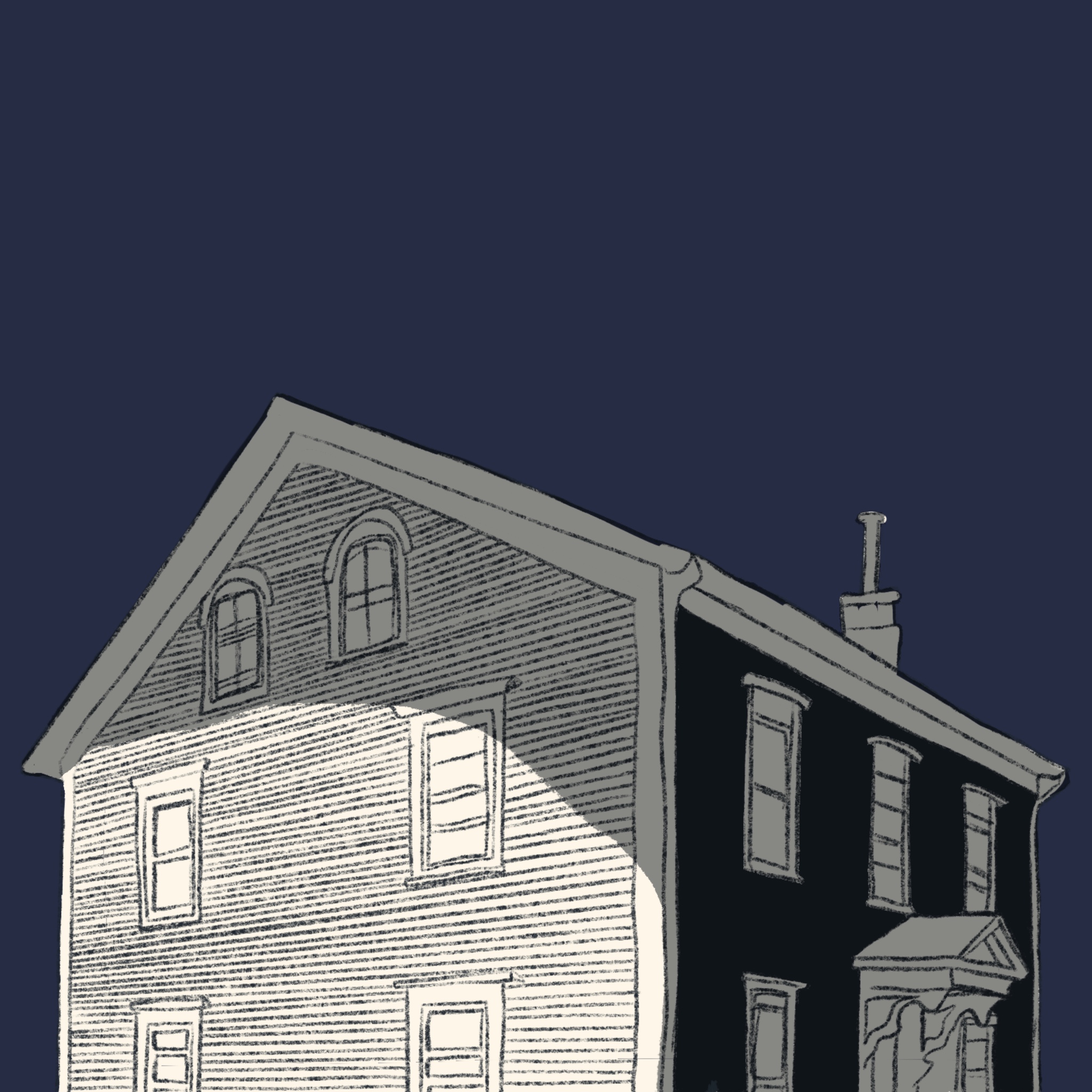This year, Tulsa County, Oklahoma’s annual homeless census found that of the area’s estimated 1,427 people experiencing homelessness, 56% had a history of incarceration.
After leaving prison, people often have trouble finding jobs and housing that accept applicants who have been incarcerated, which can lead to homelessness.
Mark Smith, CEO of Housing Solutions in Tulsa, said crimes related to homelessness, like trespassing or violating camping bans, can also add to a person’s criminal record, making it harder for them to obtain housing.
In tight housing markets like Tulsa’s, Smith said landlords can be more selective and often increase restrictions for tenants, including with stricter rules on admitting people with criminal histories.
“It only makes it more challenging for people to then get back on their feet and start to address some of those issues,” Smith said.
A proposed rule from the US Department of Housing and Urban Development (HUD) aims to remove barriers to housing by limiting the use of criminal records in background checks for most federal housing assistance programs.

Smith views HUD’s proposed rule as a starting point to address the disproportionate impact of homelessness and justice involvement on people of color.
“HUD obviously is not involved directly in the criminal justice space, but understanding that housing can be a key way for people to get back on their feet to reenter society and avoid more justice involvement for issues that would not be offenses if people were in housing—that’s one of the biggest things (about the rule),” Smith said.
The rule would apply to public housing, the Section 202 program for older adults and other housing assistance programs—but not the Section 8 housing choice voucher program.
Penelope Schlesinger, lab manager for the Housing and Health Equity Lab at the Yale School of Public Health, is in favor of the proposed rule and its potential impact on justice-involved people seeking housing. But she wondered about what HUD’s oversight of the rule would look like and if the agency would investigate whether public housing authorities and HUD-assisted landlords follow it.
“I don’t know how much it’s going to move the needle,” Schlesinger said, “because you can have a policy in place, but – I mean, who’s going to enforce this policy?”
[ Read more: Three states have new camping bans this year ]
Housing authorities also are wondering how HUD’s enforcement of the rule would work.
“That’s a concern, that HUD will then come out with another additional protocol that the understaffed, underfunded housing authorities will then have to figure out how to implement in order to verify that the housing authority and everybody is doing everything right,” said David Weber, senior policy analyst for the Public Housing Authorities Directors Association.
When asked how HUD plans to enforce the proposed rule, an agency spokesperson said HUD doesn’t comment on the enforcement of proposed rules, per agency policy.
The proposed rule would limit the use of arrest records to reject applicants
Public housing authorities have to reject applicants for their criminal histories in a few cases. People who are required to register as sex offenders for life and people who have been convicted of making methamphetamine on federally-assisted property are ineligible for federal housing assistance.
Aside from those requirements, how public housing agencies evaluate criminal records tends to run the gamut.
A 2020 study in the American Journal of Public Health examined policies for 152 housing authorities in cities with populations of 100,000 or higher. Researchers found 47% of the housing authorities had lookback periods of three years or less for drug-related criminal activity, while 53% had lookback periods of four years or longer. Half of the policies said they consider mitigating circumstances, such as participation in a recovery program.
[ Read more of our criminal justice coverage ]
The new rule would require housing authorities and other federally-assisted landlords to use a lookback period of no longer than three years when screening applicants.
Under the rule, housing authorities and federally-assisted property owners couldn’t base admission decisions on criminal background information that’s irrelevant to safety, health or fitness for tenancy. They also couldn’t make decisions based solely on arrest records.
Currently, public housing authorities and other landlords can deny a household with members that have been involved in drug-related, violent and other criminal activity that could threaten the health and safety of other residents, the property owner or housing authority. The new rule still allows these denials.
Public housing authorities and other HUD-assisted landlords are already required to notify applicants if they’re being denied based on a background check and give them a copy of the criminal record prompting the denial. They’re also required to allow applicants to dispute the accuracy or relevance of a criminal record, but the current regulations don’t specify how long an applicant has to do that.
HUD’s proposed rule would give tenants at least 15 days after a denial to dispute the criminal records, and landlords must consider mitigating circumstances.
Current regulations give public housing authorities and HUD-assisted landlords the option to consider mitigating circumstances without requiring it.
“That had been mostly left to their discretion,” said Marie Claire Tran-Leung, senior staff attorney for the National Housing Law Project and director of its evictions initiative. “A lot of public housing authorities and owners either didn’t let the tenants and applicants know that was available, or even if (tenants) did provide evidence, they didn’t really consider it.”
[ Read more: Homelessness is affecting more older adults as rents eclipse fixed incomes ]
HUD’s proposed rule excludes housing choice vouchers
Most of HUD’s rule wouldn’t apply to Section 8 housing choice vouchers “to avoid discouraging owner participation,” the proposed rule says.
Public housing authorities have a limited number of vouchers to provide, and tenants often face lengthy waiting lists to receive them. Voucher holders have a certain amount of time to use the assistance, and many landlords won’t accept them. A 2018 Urban Institute study found that in places without source-of-income laws that require landlords to accept vouchers, properties denied 67% of voucher holders.
Tran-Leung said excluding voucher landlords is unfair to tenants who may have a voucher but not be able to use it on the private rental market.
“That, in itself, really undermines the purpose of the rule, which is to expand opportunities for people with records,” Tran-Leung said. “At the same time, though, this is a much bigger question within HUD than the criminal history context, and HUD in general seems to need to make sure that when they’re putting tenant protections like this in place that they properly balance both the rights of the tenants and what they’re trying to do with the voucher program.”
Public comments suggest housing authorities are skeptical the rule is needed
In public comments on the rule, service providers were generally optimistic that the rule could improve their clients’ access to housing assistance. Public housing authorities, on the other hand, tended to question the need for the rule and worried the proposed changes would put tenant safety at risk.
“We’re housers, and we need to have responsible tenants,” Weber said. “Yes, housing is key to reentry, but that’s not the primary purpose of housing authorities. The primary purpose of housing authorities is just to provide housing to low-income folks.”
[ Read more: Texas is banning youth curfews. Here are other ways cities can prevent juvenile crime. ]
In public comments on the rule, housing authorities expressed concerns about the proposed lookback period, the inconsistency of not applying the rule to housing choice vouchers and other aspects of the rule.
Weber said he’s heard a broad range of opinions on the rule from members of his organization, with some housing authorities worrying about the effect of limiting the lookback period and use of arrest records for background checks.
“Especially in those places where there is still gang activity, you need every tool you have to identify who those folks are and get them out for the safety of your other residents and your staff,” Weber said. “This could make it harder in some of those cases.”
TLDR: What would HUD’s proposed rule do?
- Apply to public housing, Section 8 project-based housing, Section 221(d)(3) below market interest rate program, the Section 202 program for older adults, the Section 811 program for people with disabilities and the Section 236 interest reduction payment program
- Require lookback periods of no longer than three years for criminal background checks
- Require public housing authorities and federally-assisted landlords to consider mitigating circumstances, like participation in a recovery program, when evaluating tenants
Contact Streetlight editor Mollie Bryant at 405-990-0988 or bryant@streetlightnews.org. Follow her reporting by joining our newsletter.
Streetlight, previously BigIfTrue.org, is a nonprofit news site based in Oklahoma City. Our mission is to report stories that envision a more equitable world and energize our readers to improve their communities. Donate to support our work here.




So a recently homeless family of 5 and 3 are under 17 with straight A’s in high school , that got evicted due to an Illness. But not a Landlord in Florida will rent to us with not even an $7189 monthly income. Because of a blip. Yet CRIMINALS and people that did their own damage gets a home handed to them????
Let me tell you something MR. I did a 5yr sentence for marijuana back in the 80s and told the court then as soon as you folks figure out how to get all the money you’ll legalize it, I worked two jobs from age 16 to 54 and would never have had to resort to selling marijuana if they had given my poor crippled up 62 yr old mother the disability she needed so her and my two minor brothers could survive …guess what happened? They figured out how to get all the money!!! Now it’s legal in 23 states !!! And even tho I put in them 40 yrs working I can no longer afford to live in California, do I get the 5 off 10 yrs back or 78,000 dollars I had in my accounts back…or my home that some homeless person decided to burn down…no I get squat including no help for housing from the government that I payed my taxes to year after year because I’m a felon…Well you know what I did my time…and I’m very happy that you’ve never had your back against the wall and to some hung to put a roof over families head or food in their mouths but I have and paid for it…so don’t judge me by my past cuz that depts already paid!!!
Is fair that people our getting assistance from HUD and vouchers when they are using drugs. Why is it that they don’t have to wait to qualify just be in a shelter .In my case I am 69! And been homeless for years. But these people are put before me with the help of a housing coriander. There getting voucher and still using drugs. I know serveral people who have done this. End up losing their place. But I can’t get any assistance from agencies. What a waste of time and money. This in Lancaster Ca . Please help me to understand what is happening with the system. Iam under the extreme poverty
Level with disabilities. HUD has me on ever waiting list. But no voucher. Is this what I worked for all of my life and paid into the system. But others are using the system to get over. Now you want to lower the standard and make it more easier for the people who don’t deserve it. This is not the answer for me.
Been homeless for 2 years and raised my son. Been applying for 2 years for hud now. And got denied. Why cause I don’t have the required address they want. It’s like this ifi had a address I wound not need help.
This is years of minorities being disproportionately affected by discriminatory housing policies across America. This is why Fair Housing laws were implemented. Did we forget how we got to this point? Drug addiction is considered a disability. It’s referred to as polysubstance abuse disorder. Thus , allowing the federal authorities to not automatically disqualify people for their use.
As long as these people aren’t posing a threat to their neighbors and surrounding communities then HUD simply cannot regulate what someone does on their personal time
All it’s going to be one big problem after another and the people who did it right, but are less fortunate will suffer the consequences on a daily basis I have seen this up close and personal all my life.
I think each cae should be evaluated based upon the fact that people deserve a chance to change. I say this because I have a son who is paranoid schizophrenic and believed a young girl who showed him a fake i.d. when in fact she was just a teenager. He’s now labeled a Life Time Sex offender. He’s been to prison, did his time, but because of Oklahoma’s strict laws, he’s doomed to homelessness and a continued life of depression and sees crime as the only life left for him. It’s very distressing because I know there are many people who made mistakes but have cleaned up their lives but still homeless.
I live in subsidized housing for over 36 years. Due to my health. I don’t work. Yes, these people need housing. But, they take advantage of the system. I have seen many apartments destroyed by tenants and drug cases. HUD needs to do better screening for that the people that they rent to are fully screened. I am experiencing a situation myself with a tenant. Who never took care of their place. And now HUD has to go thru the legal system to evict the tenant. After destroying the apartment. And being paid by HUD to live there. There are many tenants that have people who are not on the lease. And don’t report their income. That live in housing. I pay my rent. I live by the rules. Notice I said I. Because people take advantage of the system. Yes there are many homeless people that really need shelter. But do the screening the right way. The development in my area is destroyed by this. It’s sad what I seen over the years. HUD please do the same screening as the government had years ago. Be tough because these developments are being destroyed. And then no one will have a place to live.
Should also propose running background checks on people yearly because from year to year we don’t know if a person commits a crime once they’re already in the HUD system they only do background checks one time after that you can live there among people who have committed crimes after they have moved in. Defeats the purpose of not allowing criminals to live there when there are criminals really living in HUD systems.
Everyone needs a place to live, it’s over 115′ in the desert 🏜️. People are dying. Out of humility everyone needs shelter. I put my faith and hope in God’s s grace and Mercy. People do recover but we’re all human and shelter is necessary.